I share the REAL Truth about Omega-3s in your diet and get to the bottom of the top myths about Omega-3s, specifically EPA and DHA.
Let’s be honest- a lot about nutrition is complicated and controversial. One week gluten is the root cause of all disease, and the next, we’re pointing the finger at dairy. As a dietitian, it’s my job to try to weed through the noise and help you all make the best decisions possible about what to eat. That means a LOT of myth busting. I used to think that there were very few foods or nutrients that the public could agree on was good, with omega-3 fats being one of them. But after becoming an active member of the online “mommy†community, and seeing a whole new world of conspiracy and distrust open before my eyes, I knew I had to get to the books to uncover the real truth about omega-3s. First of all, let’s do a quick omega-3 tutorial.
What are Omega-3s?
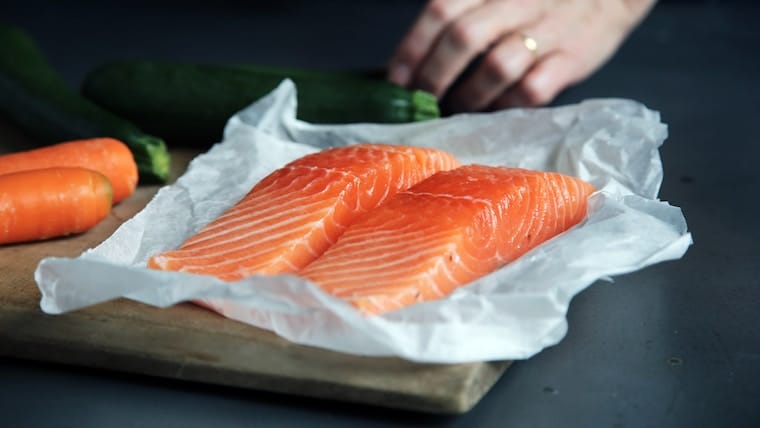
We hear this buzzy word over and over again, and it’s quite possible that like gluten, a lot of people may not know exactly what it is. Omega-3s are polyunsaturated fats, the most common of which are EPA, DHA and ALA. ALA is considered to be an essential fatty acid, while EPA and DHA can be produced from ALA. Unfortunately the conversion process isn’t very efficient, hence why we need to get these fats from our diet and not rely on ALA’s shotty conversion. They’re obviously hot stuff, I mean, there are more than 30,000 studies on EPA and DHA omega-3s, including more than 3,000 human clinical trials, making EPA and DHA among the most studied nutrients in the world.
Top Myths about Omega-3s
Omega-3s are also a lot more complicated for people than I ever imagined, so let’s take a look at the research to date and the most common myths about Omega-3s.
Myth: Omega-3s are a Fat and Fat Makes You Fat
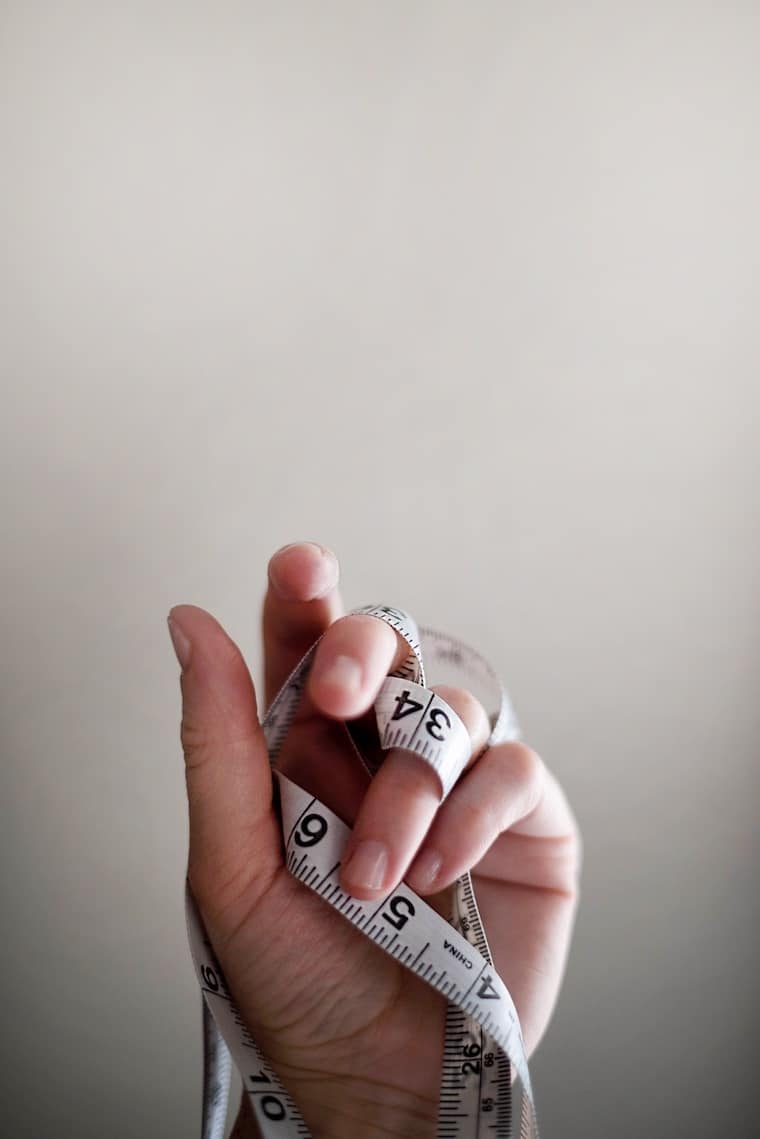
Ah yes, the old fat makes you fat concept is still spreading like wild fire in some circles. Thankfully, we’ve gotten a little bit of a breather from this thanks to the popularity of the Keto Diet, but still, there are a lot of misconceptions around fat. Here’s the thing: fat itself doesn’t make you gain weight. Consuming an excess of calories, from any source on the other hand, may. And while fat does contain a higher amount of calories per gram, it’s also a lot more satiating than its cousin, carbohydrates. One study specifically on the long chain omega-3 fatty acids found that their consumption may help promote satiety and reduce appetite, which in turn may help you lose weight. While research on omega-3’s appetite suppression properties is still in its infancy, a a few preliminary studies have found that omega-3’s may slightly increase our metabolism (here and here). One study found that taking 3 grams of fish oils each day for 12 weeks increased participants’ metabolic rate by an impressive 14%! That doesn’t necessarily make a substantial influence on weight loss, but as we now know there’s a ton of research now on the potential weight-management benefits of a ketogenic diet, it’s safe to say that fat doesn’t necessarily make you fat.
As for the concern around gaining fat specifically, some early studies suggest omega-3 may play a role! While the body of research as a whole definitely cannot make the claim that just taking omega-3’s cause weight loss, it’s possible that supplementing with omega-3s may help people shed some fat and shrink their waist-line. One study found that a group of dieters who were given 4 grams of fish oil each day lost 1.1 lbs more body fat and built 1.1 lbs more lean muscle than those who didn’t consume the oils. Others (here, and here) have found similar results with regards to body composition. Ultimately, we need a LOT more research in this area to make any definitive conclusions, but it’s nice to know we can probably enjoy these good-for-you fats without worry.
Bottom Line: Don’t cut out fats, especially omega-3 fats, in an effort to lose more weight.
Myth: Omega-3s from Plants and Fish are Equal
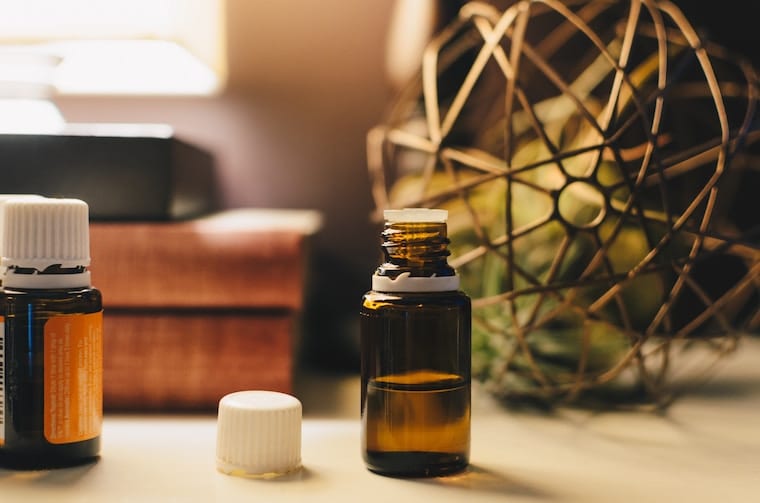
I hate to break it to my vegan followers, but when it comes to dietary sources, fish sources reign supreme and that’s because of the type of omega-3s they contain. As I mentioned earlier, there are three primary types of omega-3s: EPA, DHA and ALA.
EPA and DHA are long chain omega-3 fatty acids and are found in marine foods like fatty salmon, mackerel, tuna and anchovies. These are the omega-3s that play a key role in heart, brain and eye development throughout life (but more on all those things later).
ALA is a form of short chain omega-3 fatty acid found in plant-based foods like flax seeds and walnuts. ALA is converted into EPA and DHA, but the conversion rate isn’t great – about 8-20% for EPA and 1-9% for DHA.
The only plant-based source of DHA and EPA is Algal Oil, which can be taken like fish oil supplements as a pill.
So in order to get enough EPA and DHA, most people have to consume fatty fish, consume other EPA and DHA-fortified foods and drinks, and take some type of omega-3 supplement.
Bottom Line: EPA, DHA and ALA, while all omega-3s, are not interchangeable. There is more evidence to support the role of marine-based omega-3s, that is, EPA and DHA, for heart health, brain health and eye health. In order to get these nutrients, you should eat foods or take supplements with these specific omega-3s, rather than depending on your ALA omega-3 sources to give you the EPA and DHA you need.
Myth: You Can Get Your Omega-3s from Any Fish

While technically true, the reality is highly unlikely. First of all, most peole aren’t eating the recommended two servings of fish per week, period. And if you are but you’re getting your recommended two servings of fish each week from cod and tilapia, you may be falling short. This is why if you read the fine print, it’s important that you’re looking to fill your plate with fatty fish. Things like salmon, lake rainbow trout, mackerel, herring, albacore tuna, arctic char and sardines have some of the highest amounts.
I also get that these tend to be the more “fishy†tasting fish, and for some (especially picky children) may just be too big of a dietary leap to manage. All fish is packed with nutrients and protein, so you shouldn’t stop eating fish, even if it’s a lower omega-3 option (unless, of course, it’s high in mercury and you’re pregnant). But this is really where an EPA and DHA supplement may come into play to fill in those gaps.
Bottom Line: Fatty fish, like salmon, are better sources of omega-3s than lean white fish, like cod, or shrimp or other shellfish.
Myth: Any Amount of Omega-3s is Good Enough
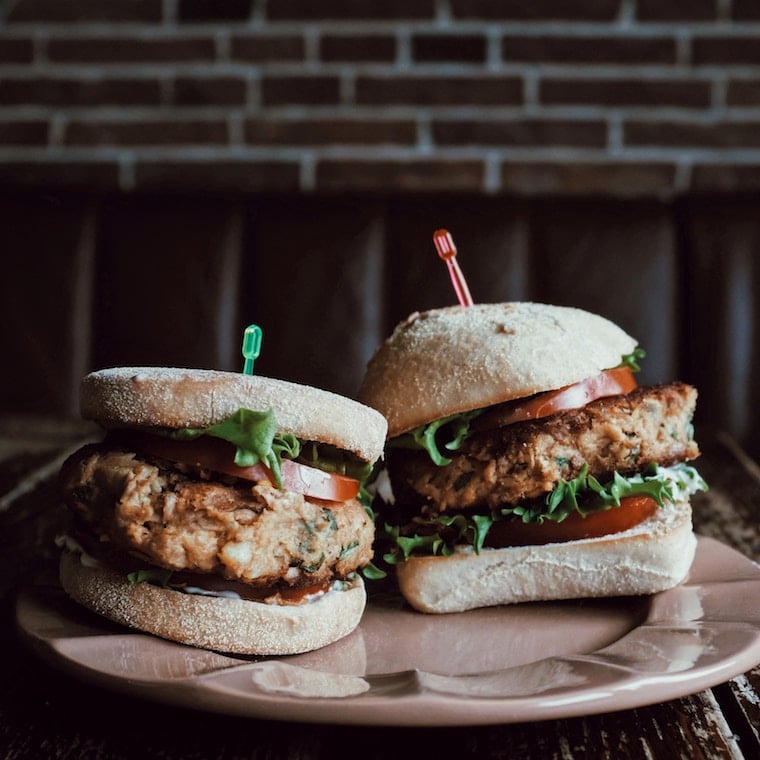
If you’re just starting out trying to eat more fish, and have never made an omega-3 supplement part of your diet, you might think that just getting anything is better than nothing. Well, that’s true, but it doesn’t necessarily make it optimal. Most health experts recommend between 250 mg and 500 mg of EPA and DHA daily for most healthy adults as this is the amount found in the recommended 2 servings of fatty fish each week. The Global Organization for EPA and DHA Omega-3s (GOED) has set the following daily intake recommendation based on their independent review of the literature:
- 500 mg of EPA and DHA per day for healthy adults to lower risk of coronary heart disease.
- 700-1,000 mg per day to slow the progression of cardiovascular disease after it’s been diagnosed.
- 700 mg per day of EPA and DHA, with at least 300 mg as DHA for pregnant or breastfeeding mamas.
- 1 g (1,000 mg) or more per day for adults with additional health conditions, such as high blood pressure, high triglyceride levels or other cardiovascular risks.
Is there any risk of overdoing it? Well, we used to really worry that omega-3 supplements could cause excessive bleeding, so it was advised to stop your regime before surgery. However, a recent systematic review found no evidence to support this premise or reason to discontinue the consumption of omega-3 supplements before surgery. As for upper limits, the FDA does not recommend we exceed 3 grams per day of EPA and DHA, but the European Food Safety Authority (EFSA) hasn’t reported any concerns at levels up to 5g per day.
Bottom Line: Based on the recommended 2 servings of fatty fish each week, most adults likely need between 250 to 500 mg of EPA and DHA Omega-3s each day. However, always speak to your doctor about the optimal amount of EPA and DHA Omega-3s for you before starting a supplement regime.
Myth: You Only Need Omega-3s if You Have a Risk of Heart Disease

So I’m sure if you google omega-3s, most articles will come up about their heart health benefits. The American Heart Association, Heart and Stroke Foundation, the Dietary Guidelines for Americans, and Canada’s Food Guide all recognize the positive association between getting enough EPA and DHA omega-3s and having a healthy heart. But does it only benefit those who already have heart disease? Not necessarily.
While a meta-analysis of the data did find the greatest benefits and cardiovascular risk reduction among higher-risk populations, they found that omega-3s can have benefits across the board. Another meta-analysis found that consumption of EPA and DHA omega-3s reduced the risk of a cardiac death by 8% in the general population, and 17% in those with already elevated triglycerides or LDL cholesterol. Finally, a study on post-menopausal women found that women with the highest levels of EPA and DHA omega-3s had a 20% lower risk of dying from any cause.
Bottom Line: Don’t wait until you’re experiencing heart issues to focus on getting enough EPA and DHA Omega-3s. There are a lot of benefit for heart health in a preventative approach throughout the life cycle.
Myth: Omega-3s Only Benefit the Heart
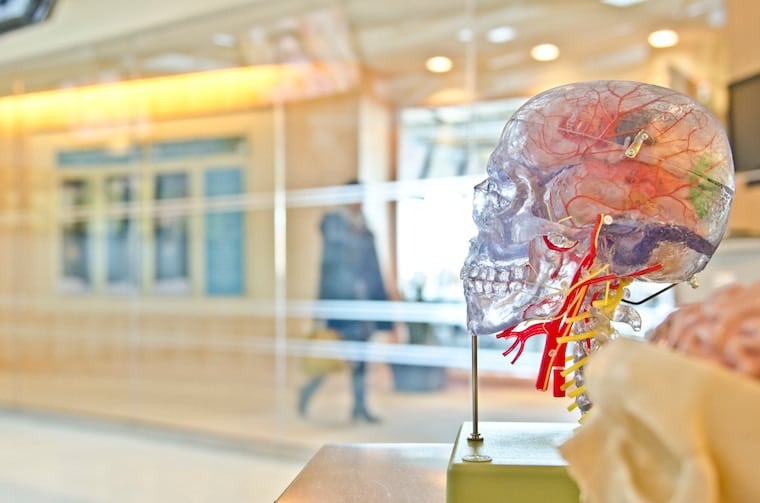
So we’ve established that Omega-3s are heart healthy, but is that all they do? Absolutely not!
DHA is one of the building blocks of our own (and baby’s) brain, and research suggests that getting enough, alone or in conjunction with EPA, contributes to better memory function in older adults.
It’s also critical for pregnant and nursing mamas whose baby depends on them for their sole omega-3 intake. Research consistently shows better neurodevelopmental outcomes in infants born to mothers with higher intakes of omega-3s. One study found that taking an omega-3 supplement during pregnancy was associated with a 58% lower chance of preterm birth (before 34 weeks) and a 17% lower chance of preterm delivery (before 37 weeks). Another study found that maternal omega-3 intake in the third trimester reduced the risk of asthma and lower respiratory tract infections in their baby by a third!
Eyes are another area that can benefit from a healthy dose of omega-3s. The highest concentration of DHA is found in the retina of the eye, so research suggests that it’s something to pay attention to, especially for mommas and mommas-to-be. Studies suggest that getting enough omega-3s during pregnancy helps contribute to normal visual development in utero, and for up to 12 months in breastfed babies.
Finally, we can’t forget about its possible role in chronic inflammation, where evolving research is linking omega-3s to improvements in rheumatoid arthritis symptoms.
Bottom Line: We’re just scratching the surface understanding all of the ways that omega-3s benefit our body. But we know for certain they do much more than just protect our heart!
Myth: You’re Getting Enough in Your Diet
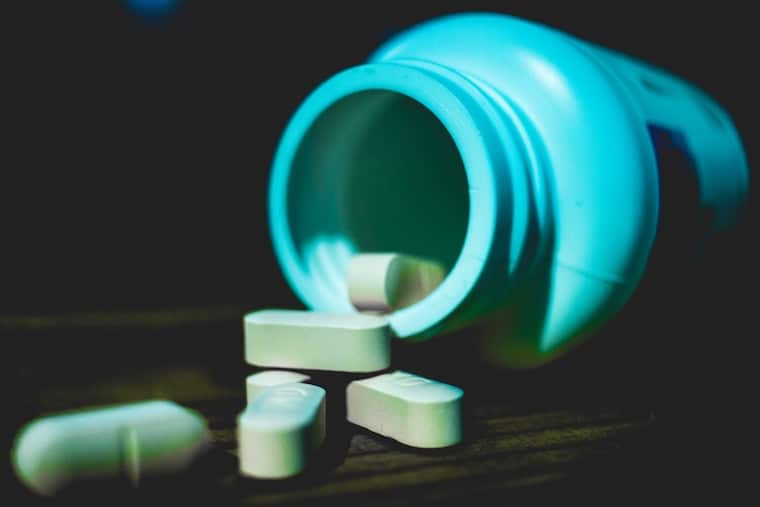
I’m a food-loving dietitian and I’m ALL about getting as much nutrition from food as possible. I also happen to enjoy food-sources of EPA and DHA omega-3s (like this beautiful maple Dijon Arctic Char). However, I would be really naïve to expect that everyone is getting enough Omega-3s from their diet. Most North Americans don’t eat enough fish, never mind the fishier fatty fish with EPA and DHA. In fact, more than 95% of Americans don’t get enough EPA or DHA from their diet to be considered cardioprotective. That’s not a great stat.
For most of us then who either don’t like fish, don’t know how to cook fish, worry they can’t afford fish, or just are having a hard time keeping it down during certain times of life (I’m looking at you, pregnancy!), this is where an EPA and DHA omega-3 supplement can come into play. Do a quick scan of your diet to determine if you need to supplement, too, and then speak to your doctor about the best dose and options for you.
Bottom Line: Most of us don’t get enough DHA and EPA omega-3s in our diet, so a supplement may help.
Myth: Omega-3 Supplements are Just an Expensive Scam
I hear this a lot and have seen headlines on this topic, but here’s the truth on that. As I mentioned before, yes, we always want to promote getting our nutrients from food (in this case, fish) first. Not only because fish is delicious (and you have to eat anyway, so might as well kill two birds with one stone to save money), but also because fish contains a ton of other really important nutrients, as well. But as we have already established, getting enough EPA and DHA in the diet is just not going to happen for a lot of North Americans. And hey, I can preach the “ideal†scenario for years and wax poetic about how delicious I think fish is, but it may not make a difference. I know just from my own experience with my picky mom that there’s no way she’s putting salmon on her plate, even if an omega-3 supplement wasn’t an option.
In an ideal world, we would all get all of the nutrients we need from food. In a pretty good world, we would use supplements as just that, a supplement, to an already balanced diet. But in a realistic world, even that doesn’t happen for most North Americans, and ultimately, there is research to support the use of omega-3 supplements for these populations.
Bottom Line: Aim to enjoy a wide range of foods, including fish, flax and walnuts, but if you’re unable to get enough omega-3s (or any other nutrient) from your diet, speak to your doctor about taking a supplement.
The REAL Truth About Omega-3s

So what’s really going on when we talk the truth about omega-3s? There’s a lot of goodness in these vital fatty acids, specifically in the EPA and DHA versions and they’re worth making an extra effort to get enough of. This is particularly true for women who are pregnant or breastfeeding, as baby’s early development may depend on these fats. I hope this analysis has shed some important light on these common omega-3 myths and helped you learn the truth about omega-3s.
What myths have you heard about omega-3s?
What do you think is the truth about omega-3s and omega-3 supplements?
Leave me a comment below with your thoughts!
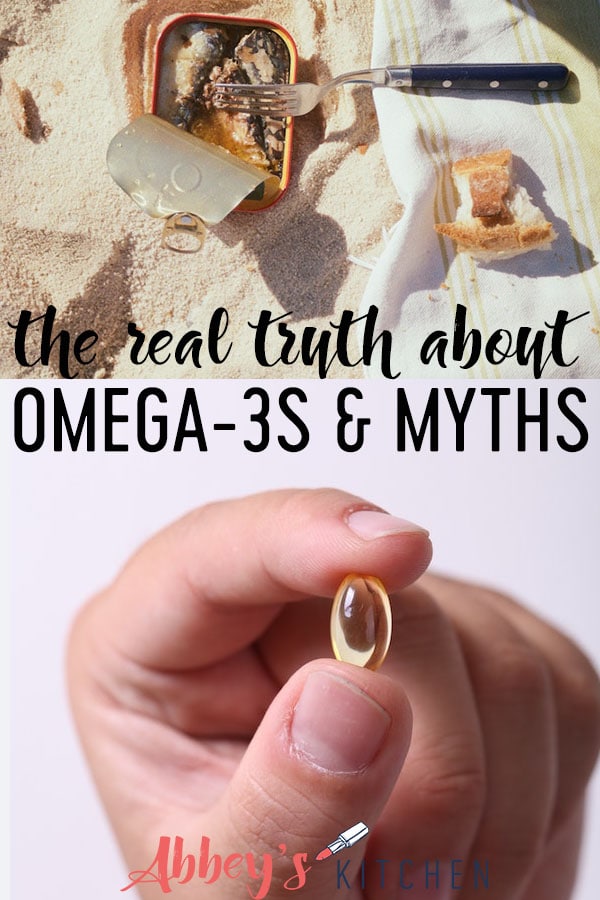
Disclaimer: This post was sponsored by the Global Organization for EPA and DHA Omega-3s, however, all opinions are genuine.
Updated on October 4th, 2021

Abbey Sharp is a Registered Dietitian (RD), regulated by the Ontario College of Dietitians. She is a mom, YouTuber, Blogger, award winning cookbook author, media coach specializing in food and nutrition influencers, and a frequent contributor to national publications like Healthline and on national broadcast TV shows.

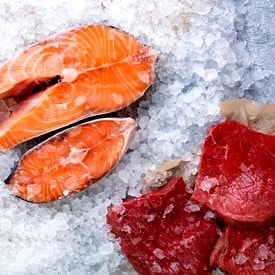


Robertt says
If humans are, biologically speaking, frugivores, then this omega 3 stuff is just a money grab. If you can only get omega 3 from fish (yeah there are a couple of vegan sources, A COUPLE, so even then it is hardly essential easy to get food), then clearly it is not an essential food for humans, it would make very difficult to survive if you really needed it, as they try to push it. And on top of that, you are actually ingesting second hand omega 3 that the fishes got from algae.
Michael says
Really great post! Couldn’t agree more that a supplement was meant to be just that, a supplement!
Abbey Sharp says
Thanks!
Conrad says
Been reading that omega 3 tablets are waste of money because the supplement does not survive in the stomach acids. ..than also the oil out of bottle is very fragile and goes rancid in no time ….etc ..etc
So wich supplement would be the better one to take or is it only good to eat fish ?
Abbey Sharp says
If you are eating enough fish or other omega 3 rich foods (walnuts, canola oil, chia seeds, flaxseed), then it won’t be necessary to include a omega 3 supplements.
Jennifer Fitzpatrick says
Hi there! Great article…I am wondering where eggs fit in on this. I often notice that when I buy eggs there is an omega-3 symbol on the carton. How does omega-3 from eggs compare to omega-3 from fatty fish?
Thanks,
Jenny
Abbey Sharp says
Hey Jenny, you can get some omega-3s from eggs which is great for people who don’t eat fish, however not the best substitute because you can get much more omega-3s from fish (1-3 grams) compared to one egg which contains 340 mg of ALA and 75-100 mg of DHA.
Karen says
Do you reccomend a supplement for toddlers? We eat 90% plant-based and I have a hard time getting the kids to eat salmon. My son is also allergic to eggs. How do I sneak more DHA/EPA into their diet?
Abbey Sharp says
i hear you! if you’re not reliably having fish 1-2x a week, i would suggest an omegs 3 supplement. I like NutraSea omega 3 kids (bubble gum flavour). otherwise, i also suggest adding lots of flax and hemp hearts and chia to everything!
Codrut Turcanu says
Omega has been the trend for many years… thanks for sharing this myths debunking post!
Abbey Sharp says
Totally! Thanks so much
Jessica Levinson says
Great job shedding truth on these myths! Very helpful information!
Abbey Sharp says
Thanks Jessica 🙂
Kelly says
I was actually just told by my doctor to stop taking fish oil before a small surgical procedure. I did read the research that showed there wasn’t proof, but stopped it nonetheless. Won’t hurt to go without for 48 hours, but I’m going right back on!
Abbey Sharp says
Oh very interesting!
Deborah Brooks says
Thanks for sharing this always nice to hear some facts on both sides
Abbey Sharp says
Definitely. Thanks Deborah